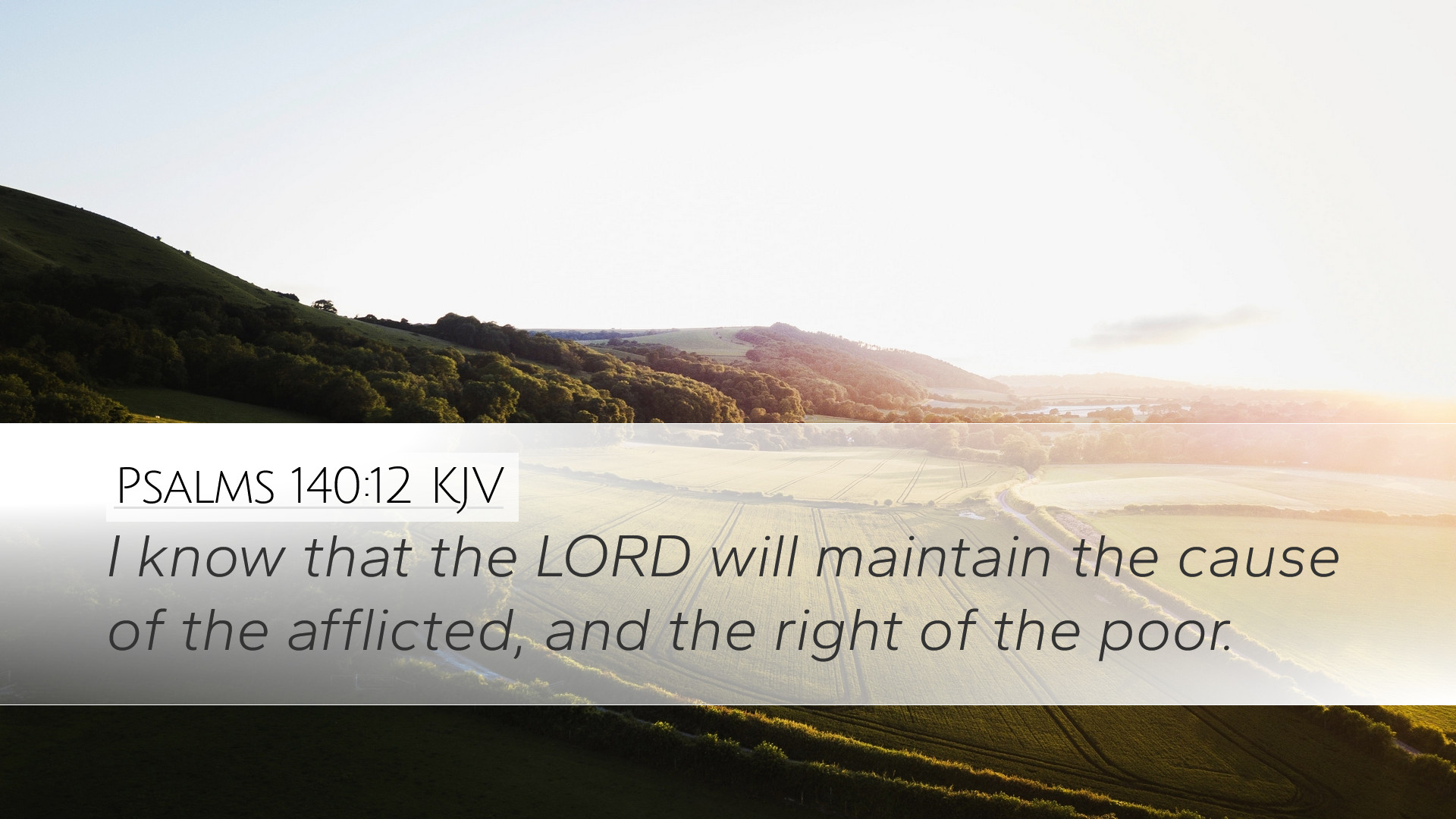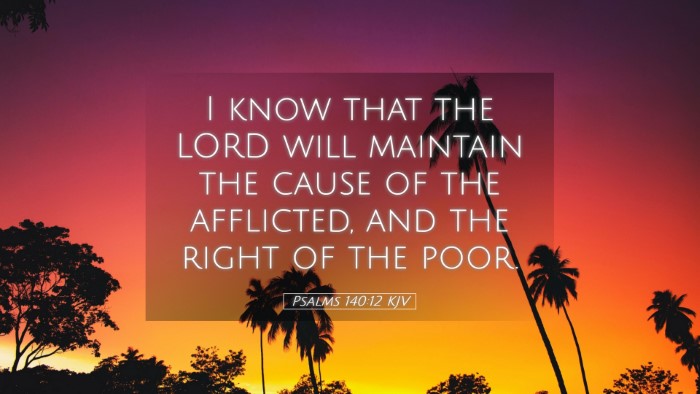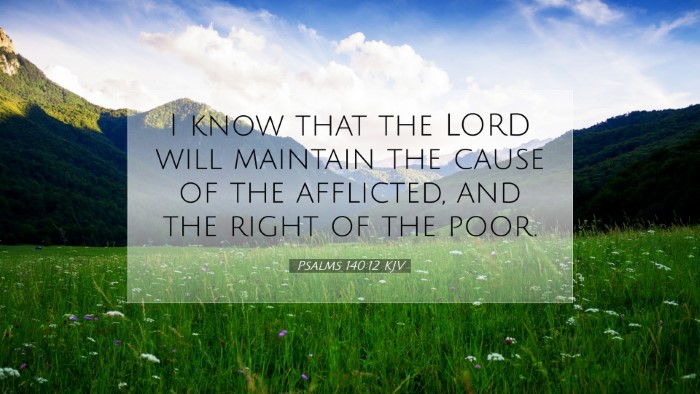Psalms 140:12 Commentary
Bible Verse: "I know that the Lord will maintain the cause of the afflicted, and the right of the poor."
Introduction
The verse Psalms 140:12 stands as a beacon of hope for the afflicted and impoverished. It assures believers that God is attentive to their plight and will advocate for justice. This commentary synthesizes insights from Matthew Henry, Albert Barnes, and Adam Clarke, exploring the implications of this verse for pastors, students, theologians, and scholars alike.
Verse Analysis and Context
Psalm 140 is a prayer for deliverance from enemies. This particular verse encapsulates a profound theological assertion: that God is committed to justice for the vulnerable. Here, the psalmist expresses confidence in God's righteous nature.
Historical Context
Understanding the historical context of Psalms 140 aids in appreciating its message. The psalm is attributed to David, possibly during times of persecution. Commentators like Matthew Henry highlight this tumultuous backdrop, pointing out that the experience of affliction often leads one to lean more heavily on God’s promises.
Thematic Elements
- Divine Justice: This verse emphasizes God's role as a defender of justice. Albert Barnes notes that God inherently advocates for the afflicted, showcasing His nature as the ultimate judge.
- The Rights of the Poor: Adam Clarke elaborates on the term “poor,” suggesting it encompasses not merely material poverty, but also spiritual destitution. God’s concern extends to all forms of vulnerability.
- Affliction and Assurance: The word "afflicted" indicates suffering, and the verse provides assurance that such suffering is not overlooked by God. Henry points out that God’s justice often works in ways unseen, but it is always involved in the lives of the downtrodden.
Theological Insights
This verse provokes critical theological reflection on God's nature and His relationship with humanity, especially those in need. The following insights emerge:
God as Advocate
Matthew Henry asserts that God is not only aware of our circumstances but actively engages in our defense. This advocacy manifests in both temporal deliverance and spiritual vindication. God's commitment to maintaining the cause of the afflicted highlights His mercy and faithful love.
The Hope of the Poor
Albert Barnes emphasizes the hope brought to the poor by this affirmation of divine justice. It can serve as a rallying cry for social justice, encouraging believers to align themselves with God’s mission to support those who are marginalized.
Prayer and Action
Adam Clarke points out that prayer is an essential response to such declarations; while affliction invokes prayer, such prayer is hopeful when it appeals to God’s nature as a just advocate.
Practical Applications
For pastors and students of theology, translating this verse into action involves practical steps:
- Empowerment of the Afflicted: Churches should prioritize ministries that support the afflicted, offering not just material support but also spiritual guidance.
- Advocacy for Justice: Believers are called to stand for justice and to be the voice of the voiceless, acting as agents of God's justice on Earth.
- Education on Rights: Educating congregations about social justice, human rights, and the biblical mandate to care for the poor can foster a culture of compassion.
Conclusion
Psalms 140:12 serves as a pivotal reminder of God's unwavering posture towards justice and His care for the underprivileged. The commentaries of Matthew Henry, Albert Barnes, and Adam Clarke enrich our understanding of this promise, encouraging believers to embrace both the assurance of divine advocacy and the call to partake in God's work of justice. As we engage with this verse, may we find our hearts resonating with God's concern for the afflicted, ensuring our response reflects His love and justice.


